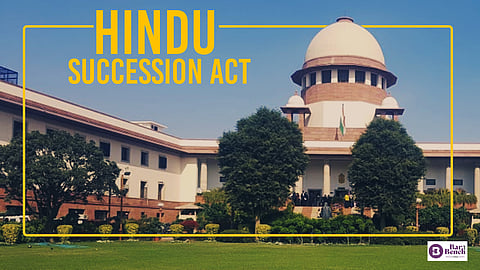
- News
- Columns
- Interviews
- Law Firms
- Apprentice Lawyer
- Legal Jobs
- हिंदी
- ಕನ್ನಡ

The Supreme Court today closed one among several petitions challenging Section 15 of the Hindu Succession Act, after noting that the litigant had already secured relief by way of a settlement in the inheritance dispute that had led her to file the case [Kamal Anant Khopkar Versus Union of India & Anr].